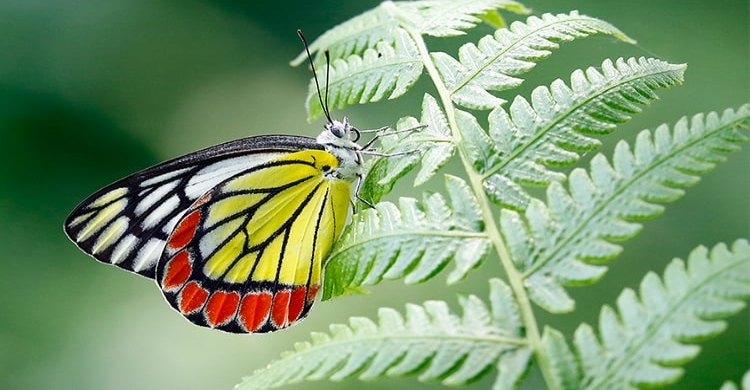Deforestation and urban growth endanger butterfly population at JU


JAHANGIRNAGAR UNIVERSITY, Oct 15, 2025 (BSS) - A study has revealed a significant decline in butterfly populations at Jahangirnagar University (JU), primarily due to habitat loss caused by urbanisation and deforestation.
The study, titled "Checklist of Butterfly Larval Host Plants and Their Spatial Distribution on the Campus of Jahangirnagar University, Bangladesh", was published in the Asian-Australasian Journal of Bioscience and Biotechnology in April 2025.
The study found that butterfly species at Jahangirnagar University (JU), once home to over 100 species have now decreased to only 72.
This alarming reduction is primarily attributed to the destruction of essential larval host plants, which are critical for the survival of butterfly larvae.
The research team, including Shraboni Das, Muntahena Ruhi, Muhammad Sohel Abedin, and Professor Dr Md Monwar Hossain from JU's Zoology Department, identified 107 plant species from 37 families vital to the butterflies' life cycles.
However, only 12 plants were found to be crucial for butterfly larvae. Important plants for butterfly larvae include Capparis zeylanica, Citrus aurantiifolia, Butea monosperma, Oryza sativa, Cassia fistula, Glycosmis pentaphy
Corresponding author Prof Monwar Hossain said, "The decline in butterfly populations is not just a loss of beauty but a warning of deeper ecological imbalances. These butterflies play a crucial role in pollination and ecosystem health. The loss of their host plants disrupts their entire lifecycle."
The study revealed that while eight of the 12 key host plants were found across all study sites, others like Oryza sativa and Capparis zeylanica were limited to fewer areas.
This fragmentation of host plants worsens the challenges butterflies face in finding suitable habitats, further contributing to the population decline.
The research, covering 10 sites across the campus, highlighted the reliance of butterfly species on plants from the Caesalpiniaceae, Poaceae, Rutaceae, Fabaceae, and Apocynaceae families. However, urban development has reduced the availability of these key plants.
Professor Monwar also warned that indiscriminate tree cutting, jungle clearing, and burning of forests have adverse consequences for ecological balance.
"Climate change is also playing a part," he added. "This year, excessive rainfall caused many butterflies' wings to break. They need sunlight for energy, and prolonged rain deprives them of it, leading to population loss."
In light of these findings, Dr Monwar urged the administration including the concerned parties to take immediate action to protect butterfly habitats.
"The rapid urbanization at JU and its surrounding areas have resulted in the loss of vital host plants that butterflies depend on," he said.
He explained that the decline in butterfly populations signals broader ecological issues that require immediate attention, emphasising that protecting these plants is essential for both the survival of butterflies and the overall health of the ecosystem.
Prof Monwar also called for integrating ecological concerns into the university's urban development in a planned manner. "We must focus on restoring and protecting key host plants. Conservation must be part of urban planning to ensure butterfly habitats are preserved," he added.
The researchers have recommended habitat restoration efforts, focusing on reintroducing and protecting key larval host plants, such as Citrus aurantiifolia, Butea monosperma, and Cassia fistula.
The study also stresses the importance of continued research and monitoring to assess the success of restoration efforts and track butterfly populations over time. Public awareness and community engagement in conservation initiatives are also vital to ensure long-term success.
Butterflies play a vital role in pollination and maintaining plant diversity. Their decline signals larger environmental threats such as habitat destruction, pollution and climate change.
The study highlights the urgent need for coordinated conservation at Jahangirnagar University and beyond, underscoring that with collective effort, the decline can be reversed and the delicate ecological balance restored.
